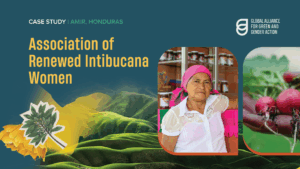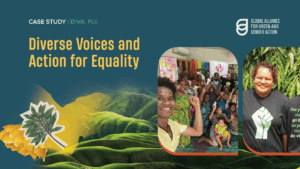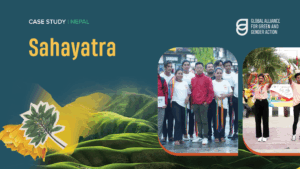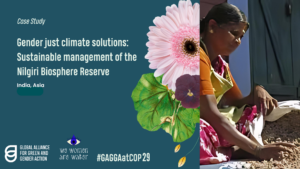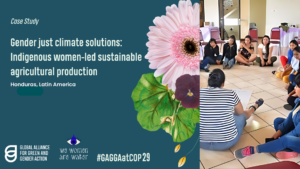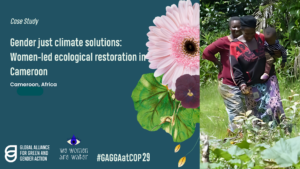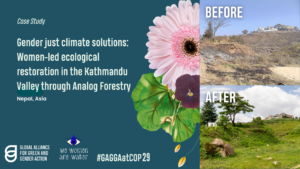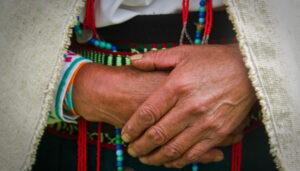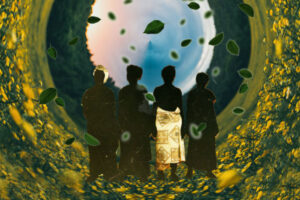Resources
Discover new tools and resources from GAGGA, with practical insights from our global network. Explore case studies, reports, and strategies to strengthen climate action, and gender and environmental justice efforts.
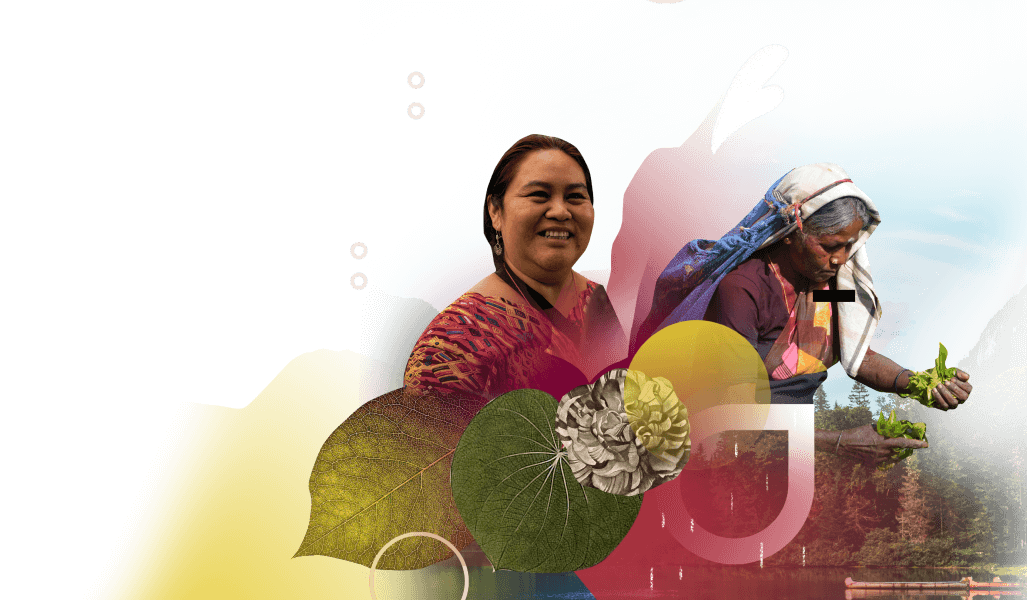
KEYWORDS
Association of Renewed Intibucana Women
The Association of Renewed Intibucana Women (Asociación de Mujeres Intibucanas Renovadas, AMIR), is a community based organization of some 650 Indigenous Lenca women in 25 communities. Its organizational structure includes 32 grassroots groups. AMIR promotes women-led sustainable agricultural production, which contributes to climate adaptation and mitigation, and is supported by FCAM. To learn more, downloadContinue reading “Association of Renewed Intibucana Women”
Diverse Voices and Action for Equality
Diverse Voices and Action for Equality (DIVA for Equality) was founded in 2011 in Fiji by a group of gender non-binary and transmasculine individuals. The group’s work focuses on issues of human rights, social justice, as well as just and inclusive development. At the core of its commitments is a recognition that LGBTQI+ people andContinue reading “Diverse Voices and Action for Equality”
Sahayatra
Sahayatra Nepal is a community-based organization (CBO) founded and led by local women in Ilam District, in eastern Nepal. Sahayatra Nepal aims to improve the lives of women in Ilam by addressing the various challenges they face, including the impacts of climate change and environmental degradation. A collaboration between partners of the Global Alliance ofContinue reading “Sahayatra”
Kebetkache Women Development & Resource Centre
Kebetkache Women Development & Resource Centre (Kebetkache), a community-based organization (CBO) in Nigeria works to promote women’s rights and environmental justice. The word (Kebetkache) is an Indigenous word for wetland, thus evoking the Niger Delta region where the organization operates. Kebetkache supports women to understand their rights and empowers them to engage and find concreteContinue reading “Kebetkache Women Development & Resource Centre”
Gender just climate solution: Sustainable management of the Nilgiri Biosphere Reserve in India
As part of Aadhimalai, small-scale Adivasi women, are ensuring sustainable management of the biosphere as gender just climate solution!
Gender just climate solution: Lenca Women Reclaiming Their Land Through Agroecology in Honduras
Indigenous women of the Lenca community are reclaiming their ancestral lands and restoring ecosystems through gender just climate solution!
Gender just climate solution: Women-led ecological restoration in Cameroon
In Mbiame Village, in northwest Cameroon, women are using the gender just climate solution of Analog Forestry to restore degraded ecosystems!
Gender just climate solution: Restoring Ecosystems Through Analog Forestry In Nepal
In Nepal, the Women’s Empowerment Center (WEC) is leading a gender just climate solution!
From Local to Global: Indigenous Voices in Climate Dialogues
Amidst the diverse terrains of Guatemala, the Consejo de Mujeres Indígenas y Biodiversidad (CMIB), a platform of Indigenous women’s organizations focused on biodiversity and climate change, stands resilient. As a torchbearer for Indigenous women’s rights and voices, they’ve been weaving together the tapestries of grassroots experiences to echo in global forums like COP28. “OurContinue reading “From Local to Global: Indigenous Voices in Climate Dialogues”
Seeds of Change: How The Women Of The Mukonka Village Are Reviving Its Ecology – One Seed At A Time
Long Story Short: In Zambia’s Rufunsa district, the Mukonka village, rich in natural resources and biodiversity, faced severe environmental degradation due to illegal logging and charcoal production, leading to loss of streams, forests, and traditional food sources. The women of Mukonka, rooted in eco-feminist principles, turned this crisis around by reviving Indigenous seeds. Through advocacy,Continue reading “Seeds of Change: How The Women Of The Mukonka Village Are Reviving Its Ecology – One Seed At A Time”




